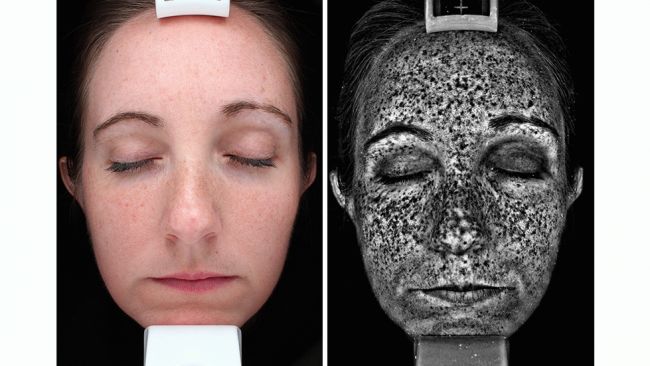
We have to see sun damage to believe it. Sunburn is easy to see and easy to learn from. It's bright pink and painful, and if it's bad enough, you'll have blisters -- and remember the all natural SPF the next time. But most sun damage doesn't show up until later in life, in the form of wrinkles, uneven coloring, age spots (which should really be called sun spots), roughness and sagging skin.
That's what we call photoaging: the cosmetic effects of sun damage that add years to your look.
The sun emits two kinds of UV radiation that affect your skin: UVA and UVB rays. The trick to remembering the difference between the two is that UVA ages skin and UVB burns it. With their powers combined, the damage can be significant.
Physicians have been fighting the idea of a "healthy" looking tan for decades, but it hasn't seemed to sink in. Here's the deal: If the sun has darkened your skin, it's because your skin cells are trying their darndest to produce as much protective melanin as possible. Your skin is hurt, and the tan is the Band-Aid.
People with naturally red hair, pale skin, light blue, gray or green eyes, or a history of sunburn are at the greatest risk for serious sun damage, but it's a myth that only light-skinned people have to worry about sun exposure -- a dangerous myth. Far fewer African-Americans than whites or Hispanics have melanoma diagnosed at an early stage, possibly because it's commonly believed that black skin is safe from the sun [source: Skin Cancer Foundation].
Uneven pigmentation and wrinkles from sun damage do not discriminate based on skin color. But are we fooling ourselves with the vitamin-packed skin care products we use to try to turn back the hands of time?
Photoaging Vitamin MVPs
While no vitamin can return your skin to its babyhood, there is evidence that some can help protect it from or reverse its sun damage.
One of the B-complex vitamins, B3, may fit the bill. The B vitamins convert pasta into energy and put fats and protein to work. They keep your skin, eyes, liver and nervous system in good shape. B3 in particular, also known as niacin, is involved in blood circulation and hormone production, too.
Apparently it likes to keep busy, because niacin has been shown to diminish dark spots and increase collagen production.
Collagen is a protein that helps make up the structure of the skin. When it breaks down, due to damage or age, wrinkles appear. UVA rays, since they penetrate so deeply into the skin, are very capable of destroying those fibers. It's possible to inject collagen to replace it, but the effect doesn't last long. Stimulating the skin to produce more of its own, on the other hand, would make a lasting difference.
Vitamin A -- the vitamin with the best claim to success on this page -- is a hero to photoaged skin. It's absorbed in the form of carotenoids or retinol, depending on whether you got it from an animal or a plant. Without vitamin A, you would go blind, and your body wouldn't be able to stave off infection. In addition to taking care of your vision and immune system, vitamin A helps out with cell differentiation and bone growth.
And topical retinoids -- a form of retinol that can be applied to the skin -- are clinically proven to treat wrinkles, hyperpigmentation and rough skin. The U.S. Food and Drug Administration has approved concentrations of two types of topical retinoids for that very purpose: tretinoin cream and tazarotene cream. Carotenoids haven't been shown to combat photoaging, but it's possible they can protect skin before the damage happens [source: AAD].
Next on our list: vitamin C, guardian of all bodily tissues. It heals your cuts, fixes up your bones, and maintains your teeth. It's also responsible for making your skin, ligaments and blood vessels -- by playing a role in the production of collagen.
It's also an antioxidant, that magical compound that we think fights the signs of aging as well as conditions from cancer to arthritis. Because of this quality and its role in producing collagen, it's possible that vitamin C could be very valuable in smoothing out wrinkles, but there just isn't enough evidence yet to make the call for sure.
But there's a caveat here: There aren't many clinically controlled studies using skin care products with these vitamins. While vitamin C in one form may prove effective on skin in a lab, that doesn't mean that any product containing it has the same benefits. There are lots of other ingredients that could block its effects, or it may not be the right derivative. So be a smart consumer. If it sounds too good to be true, it usually is.
Hi! I am a robot. I just upvoted you! I found similar content that readers might be interested in:
http://health.howstuffworks.com/wellness/food-nutrition/vitamin-supplements/vitamin-repairs-sun-damage1.htm
Downvoting a post can decrease pending rewards and make it less visible. Common reasons:
Submit